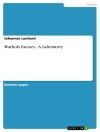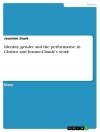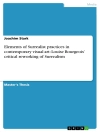The magazine discusses the increasing presence of AI in daily life and the trade-off between privacy and the convenience offered by technology. It highlights the questions surrounding the willingness to share personal information with algorithms and companies for customized experiences. As AI becomes more integrated into daily life, the text explores the potential advantages and disadvantages, considering self-driving cars, smart appliances, and healthcare management. The magazine, named COGITO, draws inspiration from René Descartes’ ‘cogito ergo sum’ and delves into the idea of AI developing a mind of its own, beyond being a functional assistant. It explores AI characters in pop culture, addressing the dichotomy of ‘evil AI’ and likable, authentic AI. The magazine aims to break free from conventional AI character archetypes, delving into themes such as identity, power, love, and responsibility. It reflects on the blurred boundaries between humans and AI, contemplating relationships and friendships between the two. The publication even includes pieces generated by an AI, prompting discussions about authorship and literature’s defining qualities. The COGITO team encourages readers to delve into the world of AI through their stories, hoping to inspire reflection and entertainment.
About the author
Bettina Gärtner works as an art and media didactics expert at the State Academy of Fine Arts Stuttgart. In this role, she is responsible for the implementation of digital tools in the education of art education students and in teacher training.












